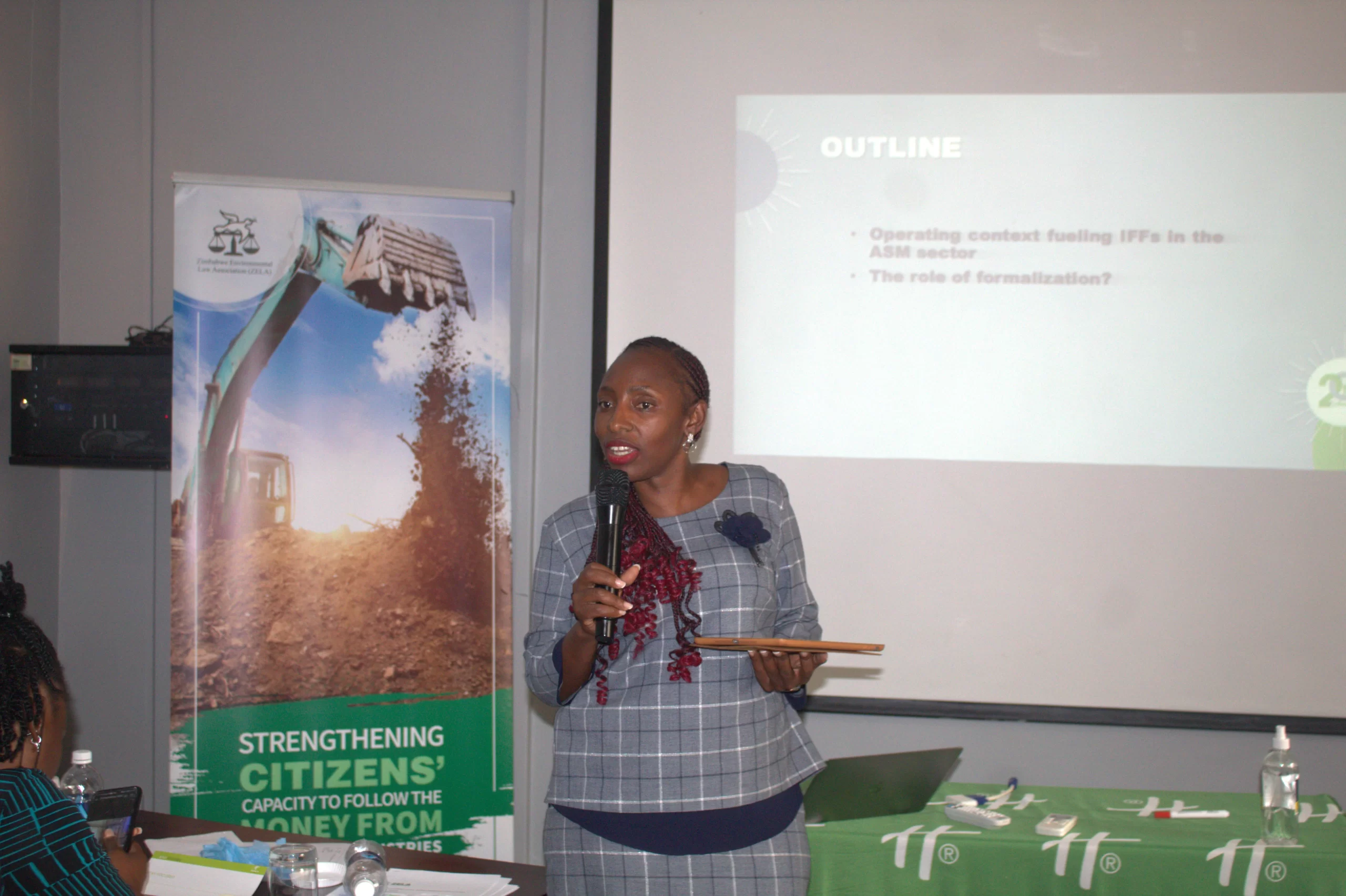Due to its informal and semi-formal operations, the Artisanal and Small-scale Mining (ASM) sector is a hub breeding illicit financial flows in Zimbabwe.
Rudairo Mapuranga
Speaking at Zimbabwe Environmental Law Association (ZELA)‘s Champion Member of Parliament (MPs) capacity-building program with the Parliamentary caucus on Illicit Financial Flows (IFFs), ZELA PROGRAMS OFFICER Joyce Machiri, said what the nation is producing is not a true reflection of the gold that is delivered to the country’s sole gold buyer and exporter, Fidelity Gold Refinery (FGR). She said, most ASM are being financed informally leading them to channel their gold to informal markets.
Machiri said, the legal framework governing ASM needs to be improved and the realities of gold mining taken into account in order to increase the chances of compliance by gold miners.
She said, there was a need to improve the data available on the ASM sector to ensure that formalization measures reflect the reality of the sector through more systematic monitoring of key data points, such as where mining takes place, how many people are involved, how much is produced and traded, etc., and greater digitalization and integration of monitoring systems, such as cadastral and inspection missions, regular ASM sector monitoring data, and inspections and controls at export points and customs.
“Smuggling in the ASM sector occurs partly due to the fact that artisanal miners, traders, and exporters face difficulties in the form of unnecessarily complicated administrative procedures, high fees, or rigid regulations that cannot meet their needs. Removing these barriers could lead to more supply chain actors operating formally and reduce incentives to smuggle products. Formalization would also make artisanal operators less vulnerable to exploitation, extortion, and onerous informal taxation
“Simplifying licensing and permit procedures and requirements for ASM operators and value chain actors, for example, by reducing the number of permits required.
“Promoting the financial inclusion of artisanal miners to combat their dependence on informal and sometimes abusive pre-financing relationships.
“Establishing an official network of gold buying, marketing, and export offices, particularly in reserved gold mining areas. This should include the establishment of local gold buying offices that pay as close to the world market price as possible and pay artisanal miners in a timely manner.
“Accelerating the formalization of the sector and the value chains of ASM and making gold mining a legitimate part of the economy alongside LSM would allow the sector to become a driver for peace and stability. This requires a shift in perspective, where state regulation of the sector aims to govern ASM through positive incentives.
“Formalization of the sector could also help marginalized and remote communities to take advantage of the economic, income, and livelihood opportunities gold mining presents, thereby mitigating grievances against the state,” Machiri said.
.png)




